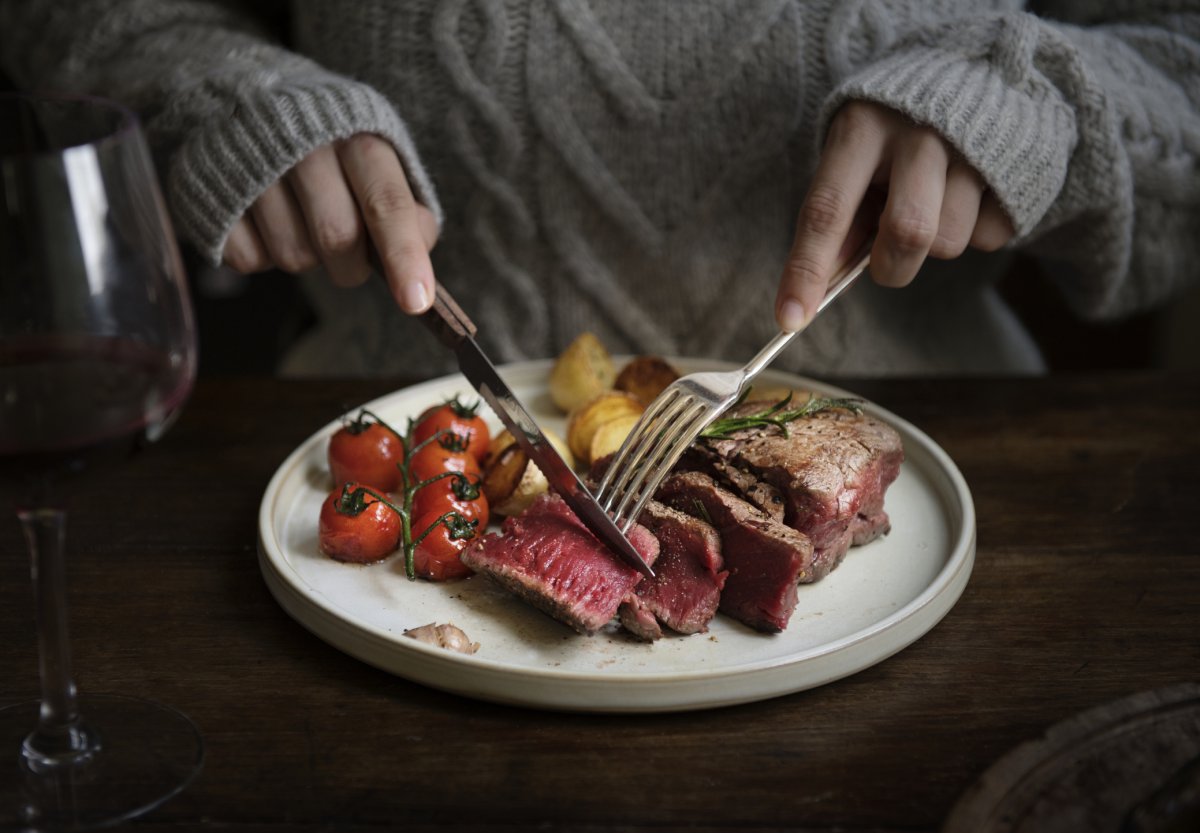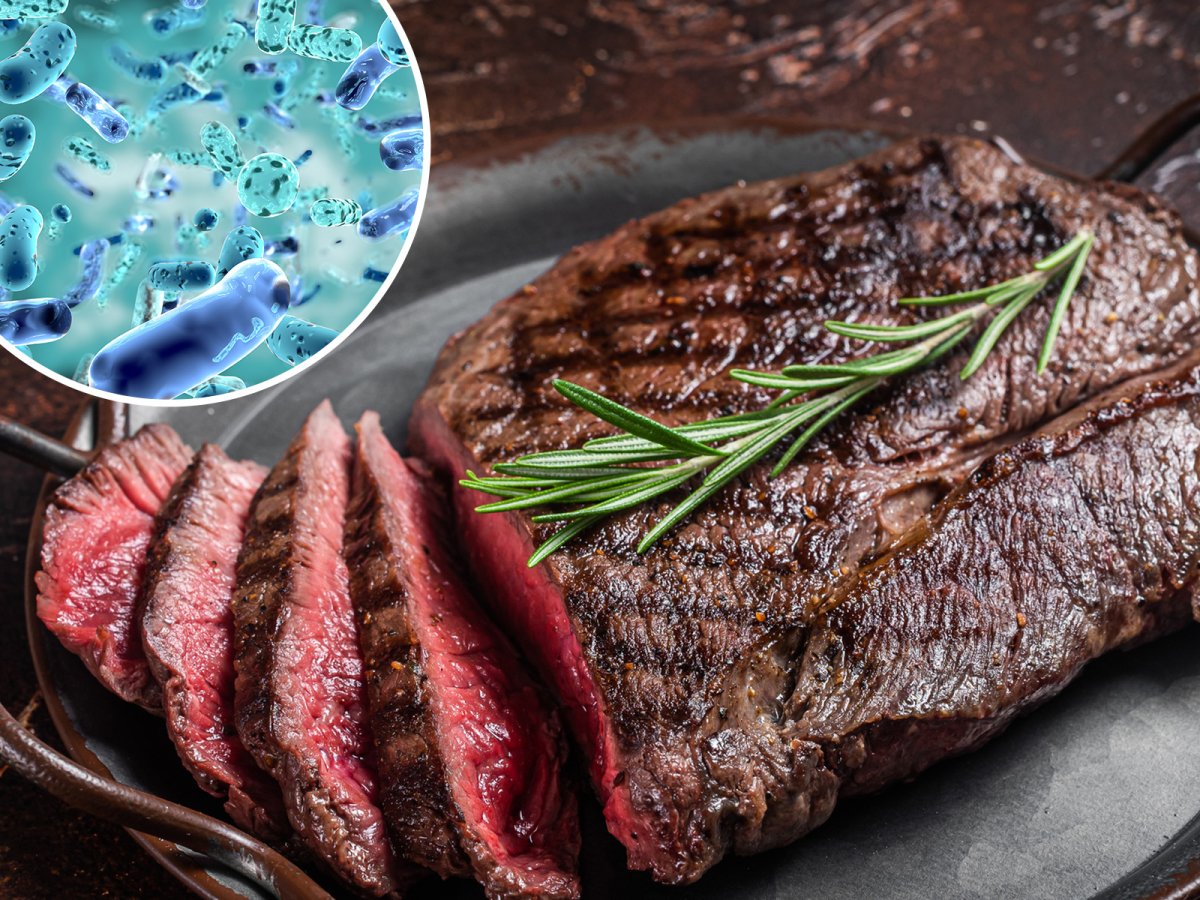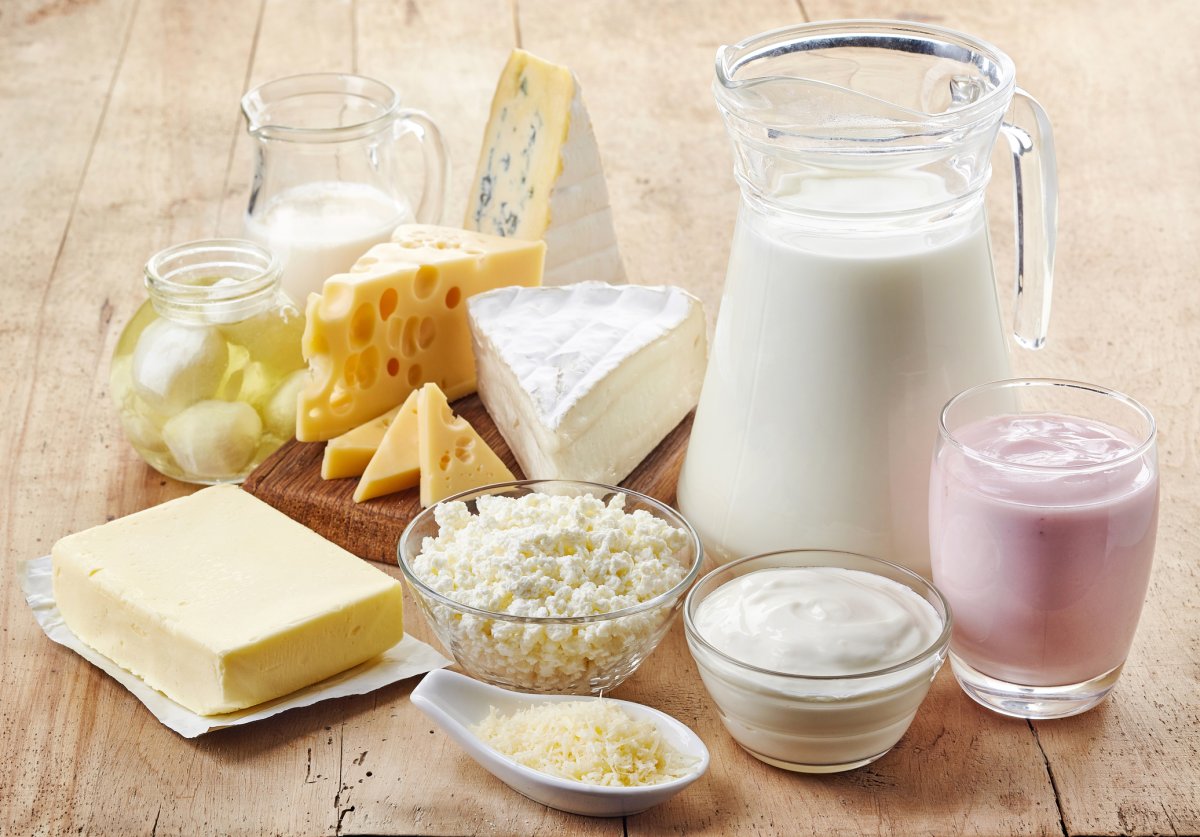We are constantly being told what we should and should not be eating. Foods that were once considered healthy are now seen as harmful and the advice always seems to be changing. One of the biggest debates is whether or not we should be eating meat and dairy.
Humans eat more meat than any other primate, and it is widely considered to have supported the evolution of our large brains. Meat is a good source of essential nutrients, protein, and fats. But while our ancestors had to hunt for their food, ours is delivered in cellophane wrapping. A lot of the meat we eat today has also been highly processed, to make it easier to digest.
In addition to more meat being available, we now have plenty of other ways to access essential nutrients. A Gallup poll in 2018 found that 5 percent of Americans identified as being vegetarian, with a further 3 percent identifying as vegan. For many, this dietary choice is based on concerns over animal welfare and the environment. But increasingly, people are turning away from meat for their health.

Numerous studies have been conducted on how eating animal products can affect a person's health, but the results have been inconsistent. So what does eating meat and dairy really do to our bodies?
Is Eating Meat Bad for You?
Based on a 2015 report by the International Agency for Research on Cancer, the World Health Organization classifies processed meat as being carcinogenic to humans—in other words, it can cause cancer—while red meat is considered "probably carcinogenic to humans."
These conclusions were mostly based on associations with colorectal cancer. In the study, the experts found that each 50-gram portion of processed meat consumed every day increases an individual's risk of colorectal cancer by 18 percent.
However, while some studies show a clear association between high meat consumption and poor health, others show no such link.
Chris Murray, director of the Institute for Health Metrics and Evaluation and professor and chair of Health Metrics Sciences at the University of Washington, told Newsweek: "The average interpretation of the data suggests that consuming meat may increase your risk of colon cancer, heart disease, [and] ischemic stroke."
But after analyzing the available data, Murray and his team found that the association between meat consumption and health outcomes was inconsistent. "These effects are not big, and the evidence is not strong," he said.

Many of these studies are based on small sample sizes, and the results are often biased by numerous confounding variables. For example, it is difficult to untangle whether it is the lack of meat in a vegetarian's diet that reduces their association with poor heart health or whether it is their increased intake of vegetables.
While it is possible to achieve a healthy, balanced diet from plants alone, it can be easier for some people to achieve the recommended intake of essential nutrients from animal-based food products.
"Meat can be a critical source of iron, and meat can be a critical source of protein, depending on what vegetables you eat," Murray said.
There are others for whom a vegan or plant-based diet could worsen pre-existing conditions, such as irritable bowel syndrome, also known as IBS. Murray said that there is some evidence that people with IBS can experience more severe symptoms when bacteria in their guts break down certain types of sugars in vegetables.
Diet and Microbiome
Our guts are home to trillions of microbes—collectively known as the gut microbiome—which have been linked to everything from digestion to depression. Our genetics and early life stages contribute a certain amount to the composition of these resident microbes, but our lifestyles also play a crucial role.
Karsten Zengler, a professor at the University of California San Diego who studies microbial interactions, told Newsweek: "It has been shown that any type of diet has a defined effect on the microbiome. The consumption of meat is no exception here."
Carmen Losasso, a microbiologist at the Istituto Zooprofilattico Sperimentale delle Venezie in Italy, conducted a study in 2018 to compare the gut microbiomes of vegans, vegetarians, and meat-eaters. Losasso and her team found some interesting results.
"The microbial richness is lower in omnivores compared to vegans and vegetarians," she told Newsweek. "[However,] the effects of the richness of the gut microbiota on the host's health are still debated."

Zengler said that while we do not know exactly what constitutes a "healthy microbiome," microbial diversity does appear to play a role: "In general, diverse microflora is considered beneficial because it implies higher resilience, for example, to pathogens. It is believed now that an optimal diet should consist of many different fruits and vegetables. Due to the different macromolecules present in these different plants, the human body will be host to a large diversity of microbes involved in metabolizing these food sources. Meat can be part of this diet. But with everything, all consumption should be in moderation."
Will Bulsiewicz, a gastroenterologist and The New York Times-bestselling author of Fiber Fueled and The Fiber-Fueled Cookbook, told Newsweek that it was not necessarily the lack of meat that was important here— but the diversity of whole plant foods, which is often higher in the diets of vegans and vegetarians.
"It's relatively important to separate a plant-based diet from a vegan diet," he said. "Veganism is an ethical choice, typically motivated by concern for animal welfare and the environment and not necessarily motivated by personal health. Alternatively, a plant-based diet is a choice to consume a preponderance of whole plant foods in the interest of human health.
"A vegan diet may include vegan junk food, while a plant-based diet attempts to minimize ultra-processed foods...[which] are generally unhealthy for the gut microbiome, regardless of whether or not they are vegan."
To make fair comparisons, data should therefore be compared between vegans on a healthy plant-based diet and healthy omnivores. A recent study found that the differences in microbial composition between these two groups were actually fairly modest. However, the differences in how their microbes functioned were more significant.
"It's not just the differences in the microbes based upon what you eat, but what's more important is that what you eat will come into contact with the microbes and they will produce a mixture of chemicals that can either protect you from inflammation or promote it," Bulsiewicz said.
The microbes that digest plant fibers appear to be the ones that produce health-promoting short-chain fatty acids, so eating more fiber can encourage these microbes to grow and produce more of these healthy molecules. "When we eat more plants, we know we're consuming more fiber," Bulsiewicz said. "Generally, what we see is that those who consume more fiber and more plant foods have stronger representation from the microbes that help us to digest fiber and produce short-chain fatty acids."
Is Eating Dairy Bad for You?
As children, many of us were told that if we drank milk, we would grow strong and healthy bones. But today, plant-based dairy alternatives are all the rage, and old-school dairy products are blamed for everything from heart disease to acne.
However, despite its high saturated fat content, numerous studies have shown that moderate dairy consumption does not negatively affect cardiovascular health. In fact, a large study in 2018 found that dairy consumption was actually associated with a lower risk of heart disease.
It is not entirely clear why this happens, but it could be to do with the fact that milk is a good source of potassium, which helps to regulate blood pressure, and so-called "good" HDL cholesterol, which is thought to have a protective effect on the heart.

There is some evidence that dairy intake can trigger acne, but interestingly this is only the case for skimmed and low-fat milk.
Dairy may also have a positive impact on our microbiomes.
According to Alexander Tyakht, a researcher of microbiome informatics at the Max Planck Institute in Germany, although plain milk does have some impact on our microbiomes—in the same way that all food does—fermented dairy, like cheese and yogurt, has a much more noticeable effect.
"There are several classes of beneficial molecules that microbes produce during fermentation," Tyakht told Newsweek. "In addition to well-known small organic acids, like lactate, that inhibit the growth of opportunist pathogenic bacteria, there are bioactive peptides—the specific chunks that are chopped up by the bacteria from milk proteins but possess novel, promising benefits like blood pressure decrease, sugar metabolism improvement, anti-inflammatory activity, and many more.
"Other beneficial substances include fatty acids biotransformed by bacteria during milk fermentation that can also manifest various activities, for example, against cancer and atherosclerosis. The multiple exciting qualities of these compounds are currently being actively studied and their health benefits are being validated experimentally."
Is It Unhealthy To Eat Meat and Dairy?
So far, studies are inconclusive as to whether meat really has a negative impact on our health. "If you wanted to be hyper-cautious, you'd say 'well, maybe it's harmful so if I can avoid red meat, maybe I will,' but there are so many other things that are more harmful," Murray said. "It's more important to eat more of the positive things like vegetables and fruits and manage blood pressure and avoid smoking."

Eating anything in excess can be problematic but, when eaten in moderation, meat and dairy can provide a good source of protein and important vitamins and minerals. Bulsiewicz emphasized the importance of introducing more plant-based foods, rather than cutting out animal ones. "You don't need to be vegan in order to enjoy a plant-based diet," he said. "You simply need to emphasize plants in your diet.
"My number one piece of advice for building a healthy gut microbiome is to start eating a wider variety of plant-based foods. In the American Gut Project (a large study), those with the healthiest guts were the ones eating at least 30 varieties of plants per week. No matter who you are or what dietary pattern you follow, you can start adding more varieties of plants in there to get this benefit."
Cutting down on ultra-processed food—whether they are animal-based or vegan—can also provide significant health benefits.
Your microbiome is totally unique to you, and what works for one person might not work for someone else. "I believe that our diet should be personalized to our individual needs," Bulsiewicz said. "There is no one size fits all."
Is there a health issue that's worrying you? Do you have a question about eating meat? Let us know via health@newsweek.com. We can ask experts for advice, and your story could be featured on Newsweek.
References
Lescinsky, H., Afshin, A., Ashbaugh, C. et al. Health effects associated with consumption of unprocessed red meat: a Burden of Proof study. Nat Med October 10 2022, https://doi.org/10.1038/s41591-022-01968-z
Losasso C, et al., Assessing the Influence of Vegan, Vegetarian and Omnivore Oriented Westernized Dietary Styles on Human Gut Microbiota: A Cross Sectional Study, Front. Microbiol., March 5 2018, https://doi.org/10.3389/fmicb.2018.00317
Prochazkova M, et al., Vegan Diet Is Associated With Favorable Effects on the Metabolic Performance of Intestinal Microbiota: A Cross-Sectional Multi-Omics Study, Front. Nutr. January 7 2022, doi: 10.3389/fnut.2021.783302
McDonald D, et al., American Gut: an Open Platform for Citizen Science Microbiome Research. mSystems. May 15 2018, doi: 10.1128/mSystems.00031-18.
Gehring J, et al., Consumption of Ultra-Processed Foods by Pesco-Vegetarians, Vegetarians, and Vegans: Associations with Duration and Age at Diet Initiation. J Nutr., January 4 2021, doi: 10.1093/jn/nxaa196
Giosuè A, Calabrese I, Vitale M, Riccardi G, Vaccaro O. Consumption of Dairy Foods and Cardiovascular Disease: A Systematic Review. Nutrients. February 2022 doi: 10.3390/nu14040831
Dehghan M et al., Association of dairy intake with cardiovascular disease and mortality in 21 countries from five continents (PURE): a prospective cohort study, Lancet, November 24 2018, https://doi.org/10.1016/S0140-6736(18)31812-9
Engel, S., Elhauge, M. & Tholstrup, T. Effect of whole milk compared with skimmed milk on fasting blood lipids in healthy adults: a 3-week randomized crossover study. Eur J Clin Nutr 2018. https://doi.org/10.1038/s41430-017-0042-5
Uncommon Knowledge
Newsweek is committed to challenging conventional wisdom and finding connections in the search for common ground.
Newsweek is committed to challenging conventional wisdom and finding connections in the search for common ground.
About the writer
Pandora Dewan is a Senior Science Reporter at Newsweek based in London, UK. Her focus is reporting on science, health ... Read more
To read how Newsweek uses AI as a newsroom tool, Click here.








